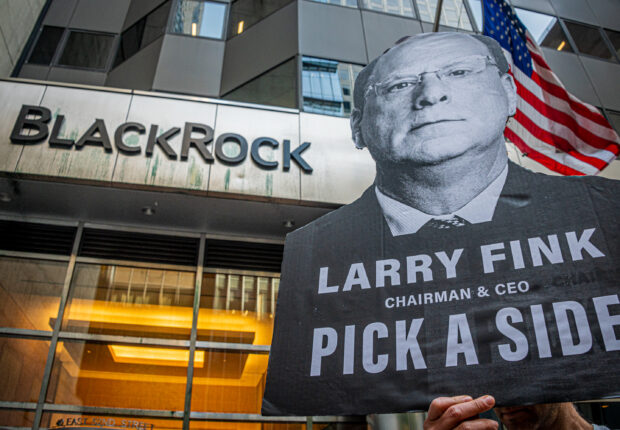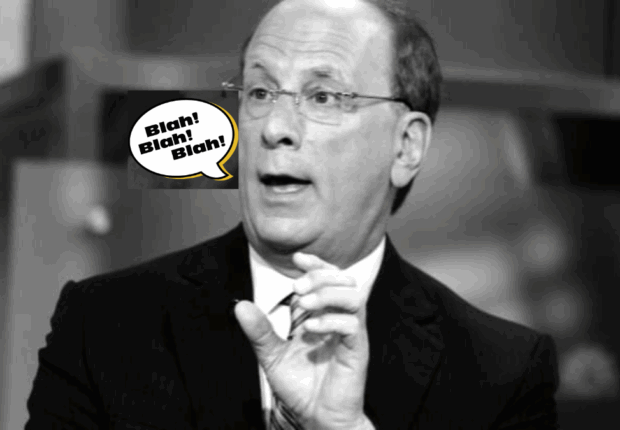‘Follow This’ climate resolution attained 30.47% support against management advice, up from 14.4% a year ago, signaling a growing number of investors seeing through Shell’s empty climate rhetoric. No word yet on how BlackRock voted.
This morning, Royal Dutch Shell (commonly known as Shell) shareholders voted on competing climate action resolutions — one an inadequate and misleading management-backed measure that would not achieve its stated goals (Resolution 20), and one brought about by the green shareholders group Follow This, which would have the company set and publish targets that are consistent with the Paris Climate Agreement (Resolution 21).
Despite management guidance, 30.47% of shareholders supported the Follow This resolution calling for alignment with the Paris Agreement. Separately, 11.26% of shareholders voted against Shell’s management-backed climate transition plan.
BlackRock is Shell’s largest shareholder, with roughly 12% ownership stake.
“Yet again we find ourselves questioning BlackRock’s commitment to its climate rhetoric. Without a statement to the contrary, we must assume that BlackRock voted alongside management, against the resolution that would bring Shell into alignment with the Paris Agreement,” said Roberta Giordano, Finance Campaigner with the BlackRock’s Big Problem network. “BlackRock has failed to take several key climate votes since the start of proxy season, throwing the seriousness of its commitments into question. This should have been a no-brainer.”
“Larry Fink will no longer be taken seriously on climate if he is not prepared to walk the walk,” said Mark van Baal, founder of Follow This. “If one of its biggest shareholders won’t join the investors voting for real Paris-aligned targets and investments, why would Shell offer more than talk and distant promises?”
For months, BlackRock has touted its commitment to hold the companies it invests in accountable for destructive climate policies. However, over the last several weeks, BlackRock has failed major tests at Wells Fargo, Barclays, and Duke Energy.
Last week, BlackRock did not disclose how it voted on the Follow This climate resolution at BP, which is a likely indicator that it voted alongside management against the resolution.
Of the key climate votes that the BlackRock’s Big Problem network is tracking, BlackRock has voted favorably only at Bunge Limited, for a management-backed resolution related to deforestation.
About the Follow This Climate Resolution at Shell:
- It received 30.47% support, more than doubling the support it received last year (14.4%).
- The same resolution was backed by 20.65% of shareholders last week at Shell’s competitor BP.
- It is opposed by management.
- This resolution asks the company to set and publish targets that are consistent with the Paris Climate Agreement.
Why Shell’s Current Climate Strategy And Resolution 20 Are Inadequate:
- The “energy transition plan” put forth by the company (Resolution 20) is weak and misleading. It lacks short-term targets and is a distraction from necessary concrete action.
- Shell has not announced absolute reduction goals to get its own emissions on track to achieve net-zero emissions by 2050.
- Shell plans to continue investing billions of dollars a year into fossil fuels while barely scratching the surface of renewable energy investments.
- Shell is relying on ‘intensity-based’ emission reduction targets based on improbable assumptions related to carbon capture and storage and offsets. This plan is half-baked and unrealistic.
Following Shell, the BlackRock’s Big Problem network will be watching the remaining key votes:
- ExxonMobil (May 26) – Vote against directors Chairman/CEO Darren Woods and Lead Independent Director Kenneth C. Frazier for failing to implement plans consistent with limiting global warming to 1.5ºC.
- MUFG (June 29) – Vote for the shareholder resolution for the company to set and publish targets that are consistent with the goal of the Paris Climate Agreement.
Why BlackRock? BlackRock is the largest asset manager in the world. As such, it has huge power and influence in major corporations – including major polluters and their funders. That influence can make or break climate action. BlackRock can use this power to fight climate change by voting out boards of directors at companies not acting fast enough on climate, and voting for shareholder resolutions that are critical for curbing the climate crisis.
Leading up to this proxy season, climate activists held demonstrations outside of BlackRock office locations in New York, San Francisco, Boston, Miami, Dallas, London, and Zurich, and will continue to do so. These actions included a giant eyeball projected onto BlackRock’s London offices. Over 80 people demonstrated at BlackRock’s headquarters in New York City. Photos from these actions are available here.
###
BlackRock’s Big Problem is a global network of NGOs, social movements, grassroots groups, and financial advocates that are pressuring asset managers like BlackRock to rapidly align their business practices with a climate-safe world.
Our network includes some of the most effective corporate campaigning groups in the US, UK, Europe, and around the world. We know that only by increasing pressure on customers, employees, peer companies, and in the media will these fossil fuel backers take the bold and visionary steps necessary to save humanity from the climate emergency.

